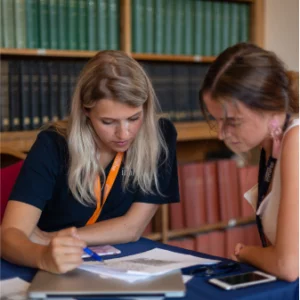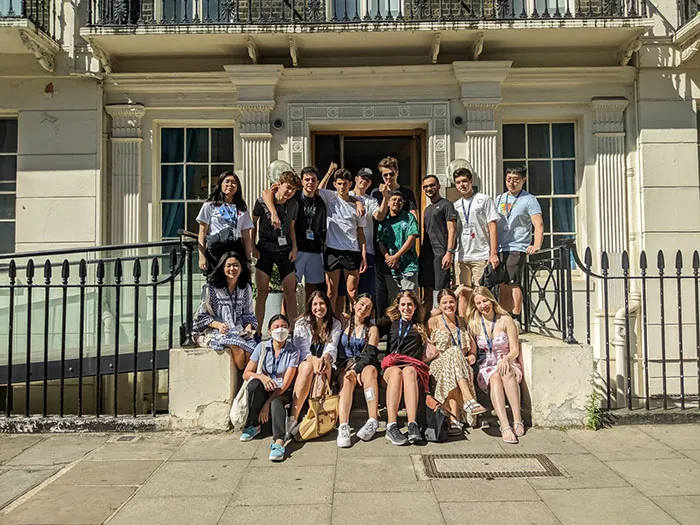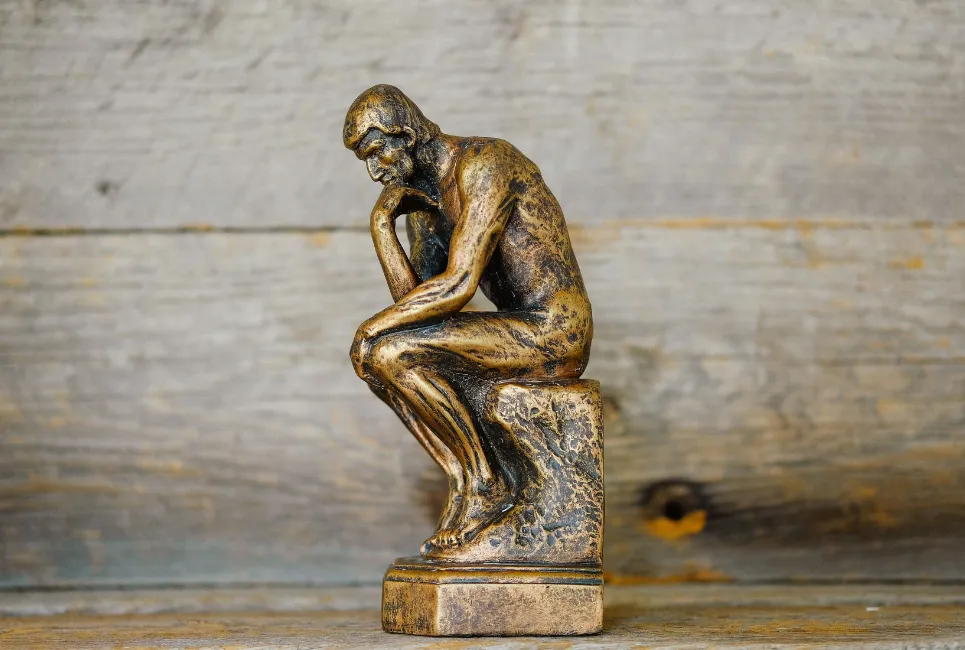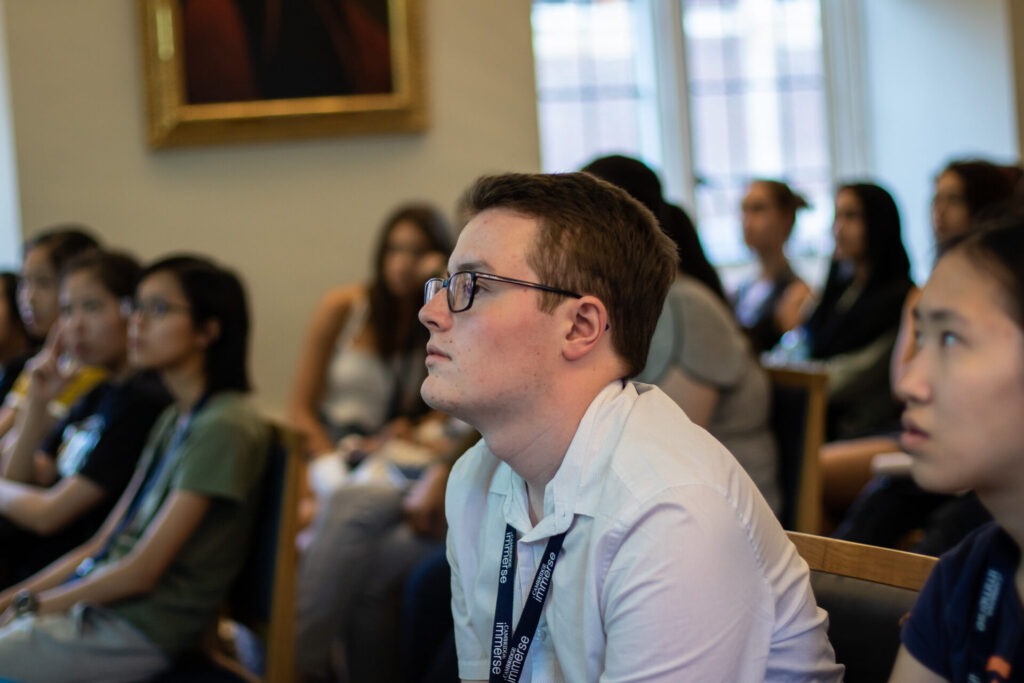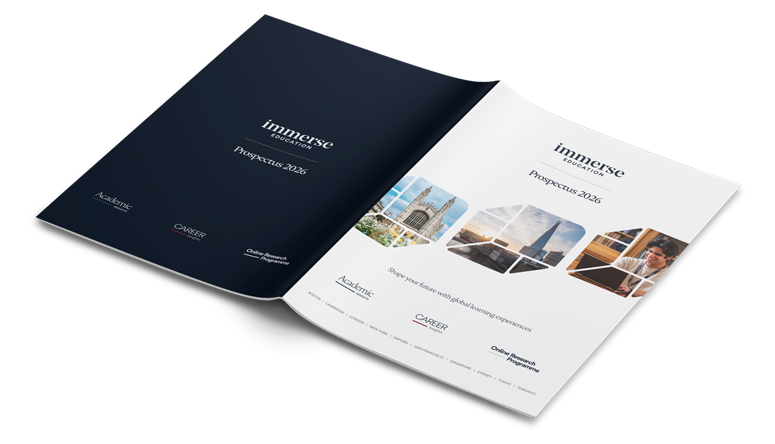The school curriculum is like train tracks—it takes you on a set path, but if you want to explore
beyond, you have to walk on your own. And I don’t just want to walk—I want to run.
My name is Viсtoria, I’m almost 15, and for the past few years, I’ve been learning not only at school but outside of it too. Ancient Greek, philosophy, literature, history—this is my personal study plan. Why
Because school often moves too slowly, while the world of knowledge moves fast.
Let’s start with Ancient Greek. Why learn a language no one speaks anymore? When I first encountered Ancient Greek, I was struck by how alive a “dead” language could feel.
It all began with Donna Tartt’s The Secret History. When I first met Henry Winter – that brilliant, obsessive character who moved through the world like a scholar from another era – I didn’t just admire him. I envied him. Specifically, I envied how he could switch between English and Ancient Greek as effortlessly as breathing, how the language seemed to shape his very thoughts. There was a scene where he corrected another student’s pronunciation with such natural authority – that moment lives rent-free in my mind.
I started small:
- Alpha, beta, gamma – writing the alphabet until my hand cramped
- Homeric hymns – reading translations side-by-side with the original
- Grammar drills – those terrifying verb conjugations that made Latin look easy
There were moments I wanted to quit. But then I’d remember Henry analyzing a Greek text with
terrifying intensity, and I’d push through.
Philosophy: Questions Without Answers
Philosophy is freedom. School barely touches it, but it teaches you to ask questions that have
no ready answers. Reading Nietzsche, Camus, or even Socrates’ dialogues, I learn to think—not
just memorize.
A Literary Awakening
Books used to seem like boring doors in other worlds – the ones I didn’t want to knock on. At school they made me read a classic, and I did it with the same enthusiasm with which I brushed my teeth: mechanically, because «must». Tolstoy? Boring. Shakespeare? Impassable. I thought that literature is just a set of stories to be told in class.
But then something clicked.
It happened unexpectedly – not with the classic, but with a modern book that I read for myself, not for school. Suddenly it turned out that sentences can not just transmit information, but breathe. What they can: Sting, warm, leave a mark.
Why is literature my everything now?
Now I read not for grades, but because:
- It’s a way to see the world through other eyes
When I read Nabokov, for an hour I become him – a man for whom Russian and English are like relatives, who sees butterflies as clearly as his own memories. - Books teach to feel the complex
The school program disassembles «Hero of our time» into pieces, like a frog in biology. But when I read it myself, Pechorin stopped being the «spare person» from the textbook – it became my reflection in a curved mirror. - Literature is magic without magic sticks
No other discipline allows you to:
Spend a hundred lives for one, find out what it’s like to be an old man in the 19th century or a child in Leningrad, to feel how the pain of others becomes yours.
Join the Immerse Education 2025 Essay Competition
Follow the instructions to write and submit your best essay for a chance to be awarded a 100% scholarship.

Why should I study literature professionally?
Because now I see: books are not just stories. It is:
- Seismic sensors of the era (why does «1984» by Orwell read as an instruction to our
time?) - Weapons (when Solzhenitsyn opened the whole system with one story)
- Salvation (as Ahmatova wrote «Requiem» – so that the memory does not die)
I don’t just want to read – I want to understand how it works. How a line of four words can survive centuries. Why some texts die, and others are wounded even after a hundred years.
The Challenges of Self-Directed Learning
It’s not always easy:
- No roadmap: Unlike school, there’s no syllabus telling me what to study next
- No grades: The motivation has to come from within
- Lonely sometimes: Most of my peers don’t share these interests
But the rewards are worth it. When I finally grasp a difficult concept in Ancient Greek or have an “aha!” moment reading philosophy, the satisfaction is entirely my own.
Why This Matters for My Future
This isn’t just about personal enrichment. The skills I’m developing – critical thinking, independent research, connecting ideas across disciplines – are exactly what universities and future employers value most. In a world where information is everywhere, the ability to teach yourself is the ultimate superpower.
Conclusion
The school gives us a map, but real discoveries await beyond its borders. Self-learning is not an escape from the system, but a bold step into a world where you become both a student and a teacher.
Every book read, every word I learned, every idea is not just knowledge. This is your personal access code to a conversation that humans have had for thousands of years. I don’t know what I’ll be in ten years. But I do know that:
- Ancient Greek taught me to see beauty in the complex
- Literature has given a hundred lives instead of one
- Philosophy gave us the courage to ask uncomfortable questions.
Perhaps someday I will write my own book – or decode a forgotten manuscript, or teach others what I have learned. But I already understand: the most important learning takes place not in classes, but in a dialogue with the world, which is much more than any curriculum.
And if my experience inspires even one person to open a book that will change their life, then I’ve already won.






